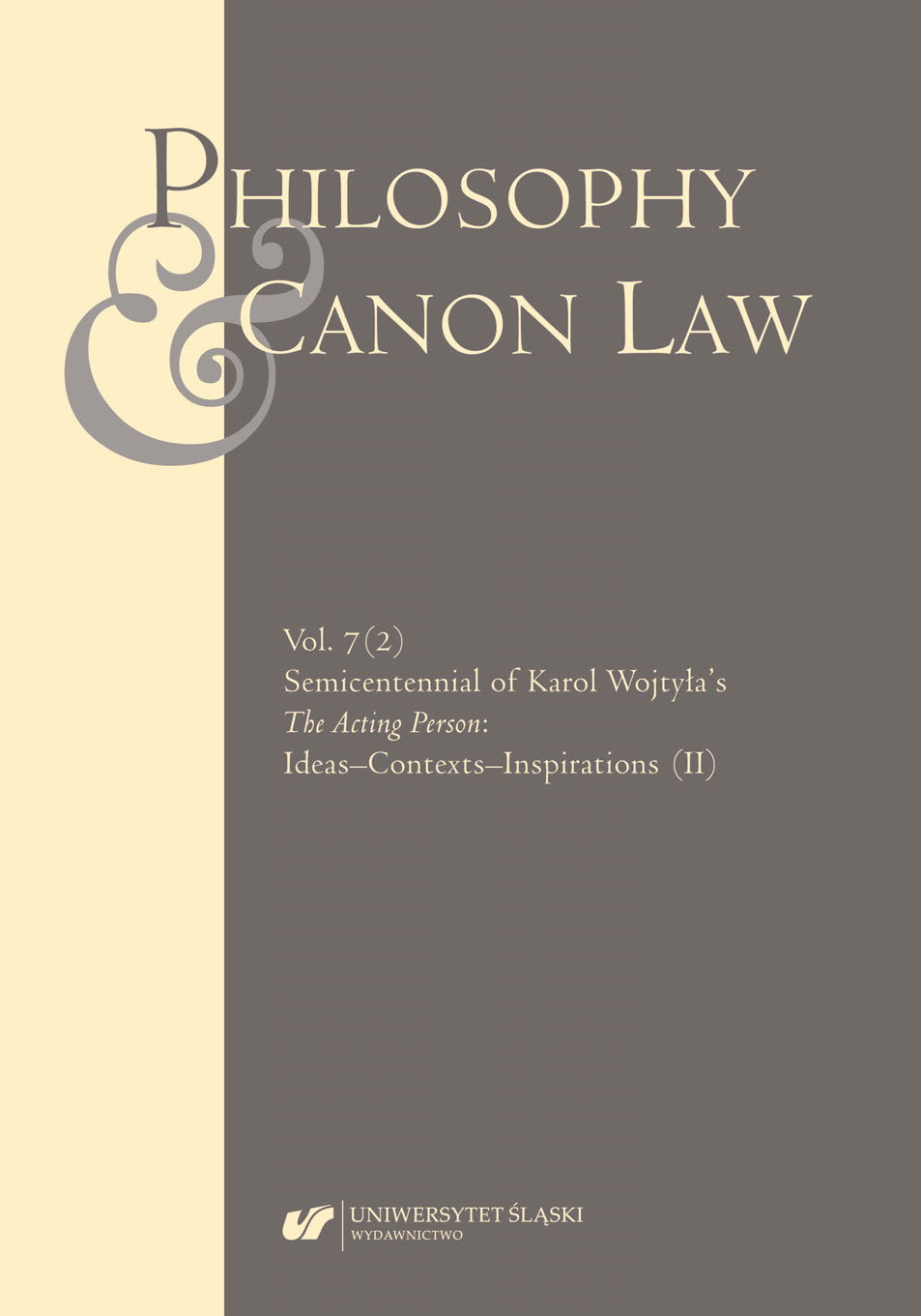The Consumer Ideology and the Truth about Man
The Consumer Ideology and the Truth about Man
Author(s): Adrian J. ReimersSubject(s): Theology and Religion
Published by: Wydawnictwo Uniwersytetu Śląskiego
Keywords: conscience; morality and moral law; utilitarianism; Marxism; John Paul II; Karl Marx; John Stuart Mill
Summary/Abstract: The formation of the human conscience is a controverted question in both philosophical ethics and moral philosophy. Conscience refers to one’s conception and understanding of the moral good. An especially significant manifestation of the problem of conscience in the 20th and 21st centuries is the impact of ideology on the individual person’s moral sense. This article considers the impact of two 19th century philosophies―Mill’s utilitarianism and Marxism―on contemporary moral thought insofar as the interaction of these two produce a powerful materialist ideology to determine the modern European and American conscience. We then turn to the thought of Pope John Paul II (Karol Wojtyła), who in his encyclical Veritatis Splendor and in his earlier philosophical writings developed an account of moral truth by which the dangers of materialistic ideology can be overcome. It is argued, with John Paul II, that only in the context of truth can a coherent account of freedom of conscience under the moral law be developed.
Journal: Philosophy and Canon Law
- Issue Year: 2/2021
- Issue No: 7
- Page Range: 1-21
- Page Count: 21
- Language: English

